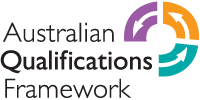CLET RPL is Helping Military and Police Transition with Conf...
This unit specifies the skills and knowledge required to work effectively in investigative services. It includes interpreting and applying legal and procedural requirements governing investigative services, understanding regulatory powers provided under the legislation and acts and omissions that comprise non-compliance or offences. It also includes contributing to positive workplace relationships with colleagues and clients, modelling high standards of performance and developing and maintaining competence in investigative services.
A person working at this level would be expected to take responsibility for organising and completing tasks assigned to them without close supervision.
This unit forms part of the licensing requirements for people engaged in investigative services in some states and territories. For further information, check with the relevant regulatory authority.





